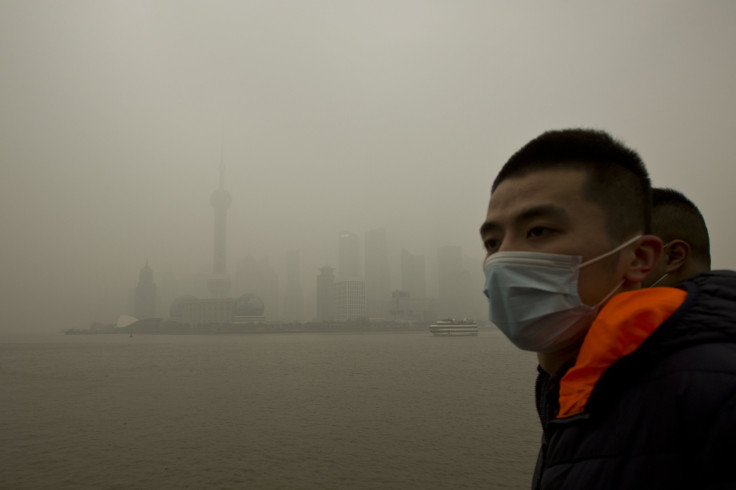China's State Media Publishes 'Five Surprising Benefits' Of Pollution List

Sure, China's rampant pollution has caused major health problems, restricted outdoor activities, and closed down roads (due to reduced visibility), to name a few of the effects. But what about all the benefits of those smog-choked skies?
That's what Chinese state media wanted citizens to focus on when its news channel CCTV ran a commentary online, during the height of a particularly bad bout of blanketing smog, promoting “five surprising benefits” of the haze. Though there's a chance that CCTV intended the article as satirical, it isn’t likely, considering the Global Times, another state-owned outlet, was perfectly serious when it said a day earlier that smog is actually beneficial for military defense.
The article has been taken down from the CCTV website following a huge backlash from unamused Chinese, but Tea Leaf Nation, a news-blog focused on digital media in China, was able to get a copy and provided highlights from the list:
1. It unifies Chinese people.
Complaining about smog has brought Chinese citizens together. The haze “is everywhere,” the article continues, from “every big city” to “small cities, towns and villages.”
2. It makes China more equal.
Never mind that wealth inequality remains deep and pervasive in China; everyone has to breathe the same filthy air, right? “Of course,” the article admits, the rich can retreat to their luxury cars or use other means to avoid the worst pollution. “But that is, after all, a minority,” and even they “have a hard time” avoiding the smog completely.
3. It raises citizen awareness.
Here it gets a bit earnest. The article insists that “with the whole world playing up the Chinese miracle,” the pollution “reminds us that China’s status as ‘the world’s factory’ [doesn't come] without a price.”
4. Chinese people are funnier when they are contending with deadly smog.
The article lists a number of popular smog-related wisecracks. The best example from a meager crop: “We’re never farther away than when we hold hands on the street -- and I can’t see you.”
5. The haze makes Chinese people more knowledgeable.
The article concludes that “through the arguments and the jokes” surrounding China’s pollution, “our knowledge of meteorology, geography, physics, chemistry and history has progressed.” Also, "students of English have added terms like 'haze' and 'smog' to their lexicon."
© Copyright IBTimes 2025. All rights reserved.






















